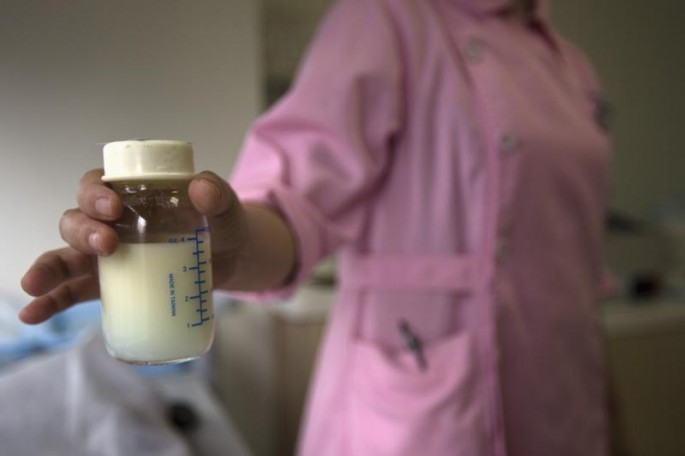Human milk banks in China are now facing trouble as donations from lactating mothers fall off.
In Guangzhou Women and Children's Medical Center, the first Chinese breast milk bank, four out of five qualified donors generously contribute healthy breast milk without any charges, the Health News, a newspaper published by China's National Health and Family Planning Commission, said.
The center specializes in medical care, health care, prevention and rehabilitation for the women and children in Guangdong Province in the southern part of China.
However, the donated breast milk cannot sustain the needs of the 90 sick infants, as it could only feed a total of six.
Another hospital from eastern China, the Nanjing Maternity and Child Health Care Hospital, also offers a breast milk bank for newborn infant suffering with illness.
The center can feed a total of five to six ill infants everyday, which is almost 10 percent of the 60 sick babies in need of breast milk for nourishment, Chen Xiaohui, co-founder of the breast milk bank in the hospital, said the news publication.
Launched in 2013, Nanjing's breast milk bank has already recorded a total of approximately 300 donors.
On the other hand, despite the crisis human milk banks are facing, the online market of breast milk is gradually expanding.
In a report by the Global Times, mothers experiencing illness as well as those who cannot produce milk opt buying online.
Some sellers can even earn thousands of yuan just by selling their milk.
However, experts were alarmed of the danger online merchandising of breast milk might bring.
Dr. Sarah Steele, a researcher from the University of London’s School of Medicine and Dentistry, wrote in the British Medical Journal that there is a possibility that babies might die from unexamined milk sold online if the industry is not controlled, the Guardian reported.
The researcher also added that 90 percent of milk sold on the Internet were found to be contaminated with bacteria.
"We should oppose selling breast milk even though it's not illegal," Yun Wuxin, a food engineering doctor, said as quoted by Beijing News.
Breast milk contains extraordinary nutrients that protect breast-fed infants from diseases and infections.
Studies also show that breast milk-nurtured infants are not predisposed to diabetes, multiple sclerosis, heart disease, and cancer before the age of 15.
But infants are not the only ones benefiting from breastfeeding, as mothers who practice it are less prone to develop osteoporosis when they grow older as well as have a lower risk of having breast, uterine and ovarian cancer.






















